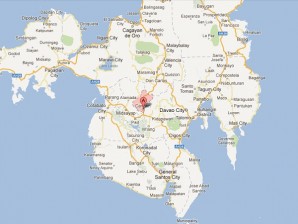Evacuees return home as clashing Moro factions bury hatchet

On Monday, the evacuees clambered onto dump trucks owned by the municipal government as they bade good-bye and thanked Mayor Oscar Valdevieso.
Valdevieso and other government officials had earlier interceded between the warring factions led by Dima Ambel of the Moro National Liberation Front and Noah Sabel of the Moro Islamic Liberation Front.
Several combatants on both sides were reported to have been killed or wounded when they first clashed on June 26 over land disputes.
Valdevieso said after weeks of negotiation, Ambel and Sabel came to terms and decided to bury the hatchet for the sake of the civilians affected by their fight.
“Both groups sealed an agreement not to resort to armed conflict in resolving their decades-long land problems in Barangay Manubuan. The signing of the agreement was done in Pagalungan, Maguindanao on August 23,” Valdevieso said.
Article continues after this advertisementHe said local officials were wary that conflict would escalate and affect more people, creating bigger problems in the future.
Article continues after this advertisement“Not that we won’t assist them but this thing should not prolong. They needed to be home because their livelihood is there. How can they support their families if they stayed in evacuation centers?” he said.
An evacuee, who identified himself only as Ismael, said they were grateful for the efforts exerted by government officials, including North Cotabato Gov. Emmylou Mendoza.
He said by agreeing to go back to their homes, the evacuees showed they had no plans of relying forever on the assistance given by the municipal government.
“We can now tend our farms without fear that the warring groups might fire on us,” Ismael said.
Segunda Torres, principal of the Manubuan Elementary School, said their students would miss the sight of the evacuees but that their return to their homes would normalize the situation at the school.
She said the school grounds would always be open to refugees from conflict.
“We would not think twice about accommodating people in distress even if it meant additional expenses for the use of water and electricity,” Torres said.
But she said that the government should put up evacuation centers.
“While it is true that schools, gymnasiums and barangay halls are being used in times of evacuation, these facilities could not guarantee their safety. They should also have a place where they can stay undisturbed and sleep soundly,” Torres said.